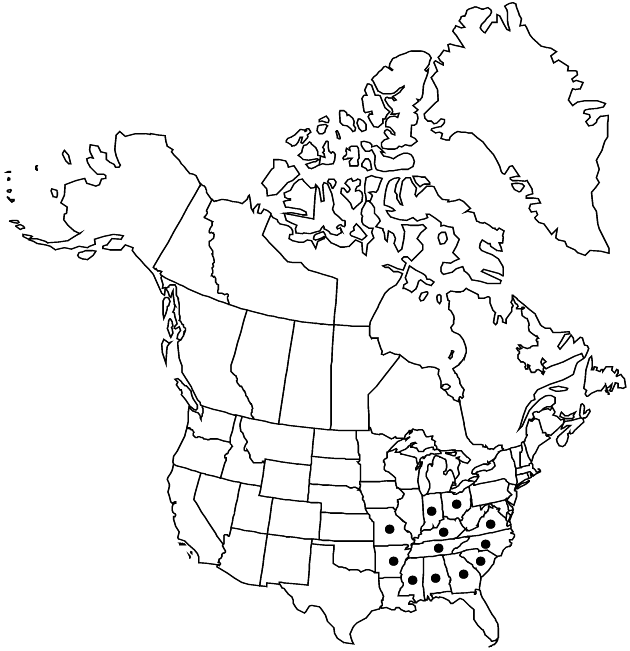Rudbeckia fulgida var. umbrosa
Rhodora 47: 400. 1945.
Common names: Shady coneflower
Endemic
Basionym: Rudbeckia umbrosa C. L. Boynton & Beadle Biltmore Bot. Stud. 1: 16. 1901
Synonyms: Rudbeckia chapmanii C. L. Boynton & Beadle
Revision as of 20:08, 5 November 2020 by imported>Volume Importer
Stems glabrous or sparsely hirsute (hairs antrorse to spreading). Leaves: basal blades ovate, 1.5–3.5 cm wide, lengths to 2 times widths, bases broadly rounded to cordate, margins coarsely dentate, faces glabrous or sparsely hairy; cauline petiolate (proximal) to nearly sessile (distal), ovate to lanceolate, not notably smaller distally, bases rounded to attenuate, margins usually coarsely serrate, sometimes entire, faces sparsely to moderately hairy. Phyllaries reflexed, 1–2.2 × 0.25–0.5 cm, glabrous or sparsely hairy. Receptacles 10–15 mm diam.; palea margins ciliate, faces glabrous. Ray florets 8–12; laminae 10–30 mm. 2n = 76.
Phenology: Flowering late summer–fall.
Habitat: Wet woodlands, bottoms
Elevation: 30–400 m
Distribution

Ala., Ark., Ga., Ind., Ky., Miss., Mo., N.C., Ohio, S.C., Tenn., Va.
Discussion
Selected References
None.
Lower Taxa
None.